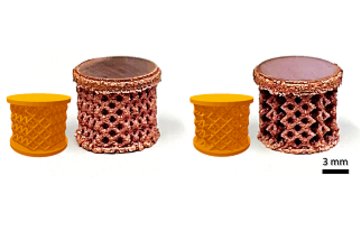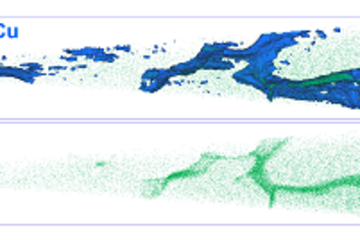All genres
401.
Talk
First principles determination of phase transitions in magnetic shape memory alloys. PTM 2010, Avignon, France (2010)
402.
Talk
Ab initio concepts for an efficient and accurate determination of thermodynamic properties up to the melting point. Calphad XXXIX, Jeju Island, South Korea (2010)
403.
Talk
First principles determination of phase transitions in magnetic shape memory alloys. Calphad XXXIX, Jeju Island, South Korea (2010)
404.
Talk
First principles concepts to determine the heat capacity of Fe-based alloys. Calphad XXXIX, Jeju Island, South Korea (2010)
405.
Talk
Chemical trends of the solution enthalpy of hydrogen in 3d transition metals in dilute limit, derived from first principles. DPG Frühjahrstagung 2010, Regensburg, Germany (2010)
406.
Talk
Computing Ab Initio Free Energy Contributions of Point Defects. DPG Frühjahrstagung 2010, Regensburg, Germany (2010)
407.
Talk
Computational Phase Studies: Deriving thermodynamic properties of metals from first principles. DPG Frühjahrstagung 2010, Regensburg, Germany (2010)
408.
Talk
Ab initio determination of the magnetic free energy contribution of metallic systems. DPG Frühjahrstagung 2010, Regensburg, Germany (2010)
409.
Talk
Spin-polarization-induced structural selectivity in substituted Laves phases. DPG Frühjahrstagung 2010, Regensburg, Germany (2010)
410.
Talk
First-principles and thermodynamic description of hydrogen interaction with vacancies in fcc iron. DPG 2010 Meeting, Regensburg, Germany (2010)
411.
Talk
Ab initio studies of nano-precipitation and growth in ferritic steels. DPG Frühjahrstagung 2010, Regensburg, Germany (2010)
412.
Talk
Strain-induced metal-hydrogen interactions across the 1st transition series: An ab initio study of hydrogen embrittlement. DPG Frühjahrstagung 2010, Regensburg, Germany (2010)
413.
Talk
First principles study of thermodynamic, structural and elastic properties of eutectic Ti-Fe alloys. DPG Spring Meeting 2010, Regensburg, Germany (2010)
414.
Talk
Structure and Energetics of the Stacking Faults in Austenitic FeMn Alloys Studied by First Principles Calculations. APS March Meeting 2010, Portland, OR, USA (2010)
415.
Talk
Ab initio determination of the magnetic free energy contribution of metallic systems. APS March Meeting 2010, Portland, OR, USA (2010)
416.
Talk
Spin-polarization-induced structural selectivity in substituted Laves phases. APS March Meeting 2010, Portland, OR, USA (2010)
417.
Talk
Ab-initio and thermodynamic description of interaction of hydrogen with vacancies in fcc iron. APS 2010 Spring Meeting, Portland, OR, USA (2010)
418.
Talk
Strain-induced metal-hydrogen interactions across the 1st transition series: An ab initio study of hydrogen embrittlement. APS March Meeting 2010, Portland, OR, USA (2010)
419.
Talk
First principles study of thermodynamic, structural and elastic properties of eutectic Ti–Fe alloys. March meeting of the American Physical Society (APS), Portland, OR, USA (2010)
420.
Talk
Computing Ab Initio Free Energy Contributions of Point Defects. APS March Meeting 2010, Portland, OR, USA (2010)











